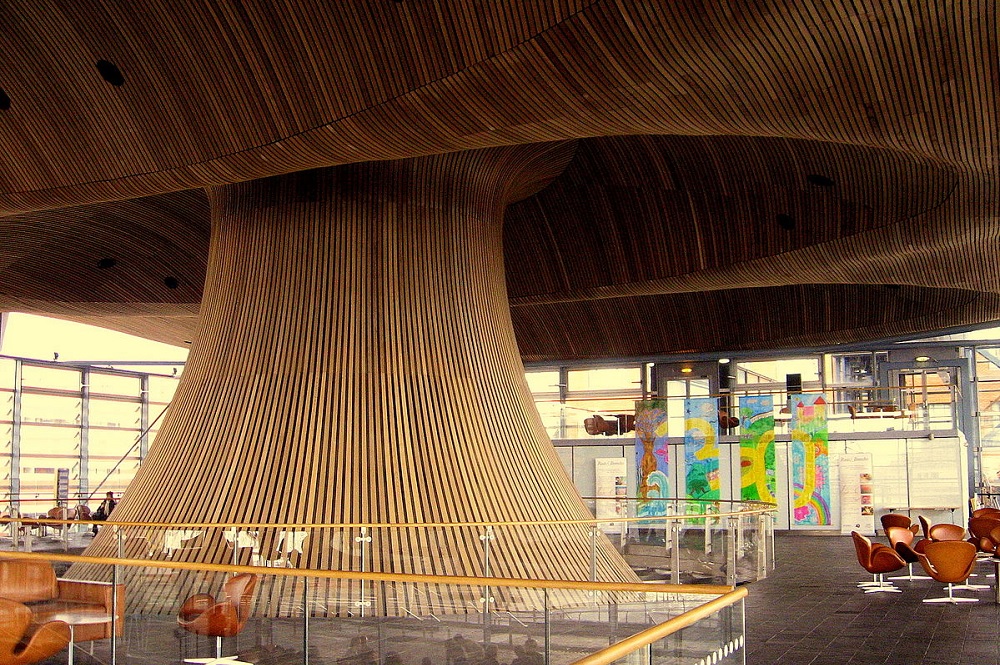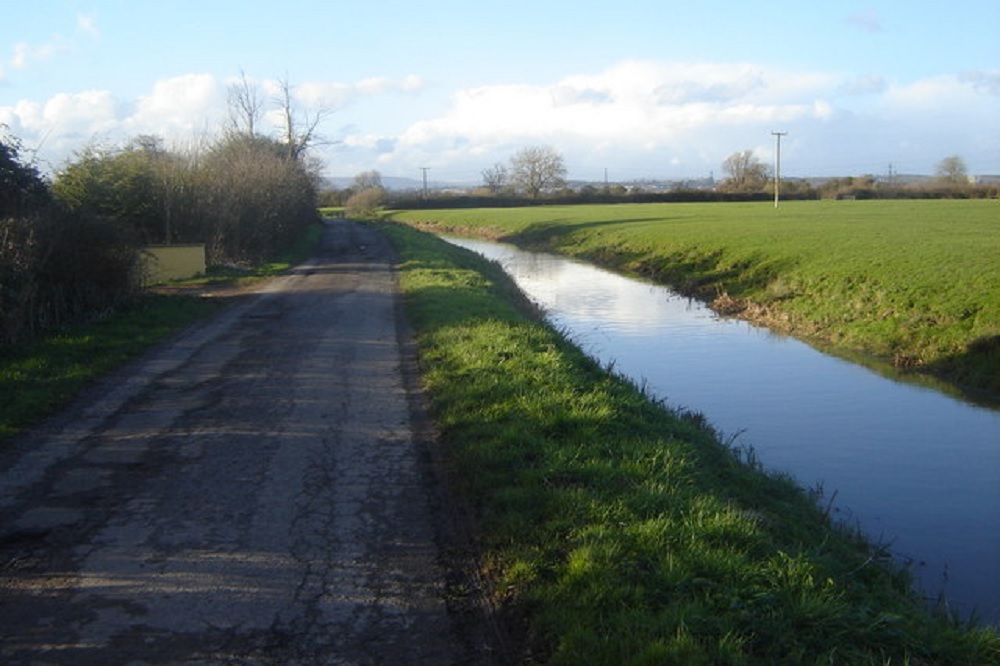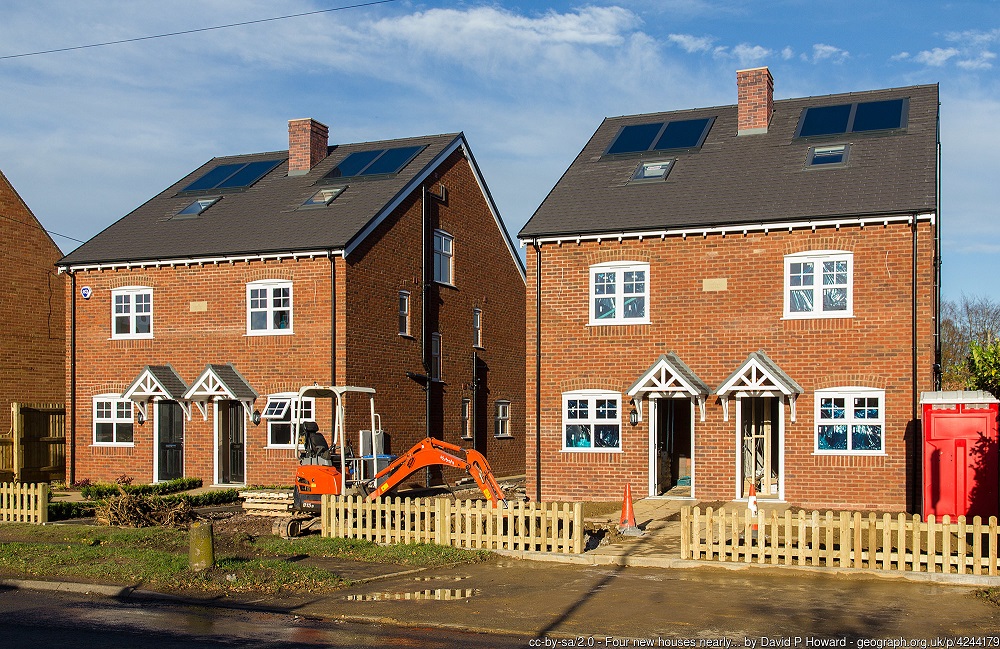Today’s Senedd Roundup: Housing and the Gwent Levels

Owen Donovan, Senedd Home
Senedd and Welsh Government agree to improve scrutiny of UK-level discussions
Yesterday, AMs discussed an agreement between the Welsh Government and the Senedd on their ongoing relationship with each other (pdf).
Chair of the Constitutional Affairs Committee, Mick Antoniw AM (Lab, Pontypridd), said the agreement was “unique” and a new way to improve transparency and scrutiny in light of the turbulence caused by Brexit.
“The relationship that exists between Governments in the UK is going to change if we leave the European Union. It will be vital, therefore, that Assembly committees and the National Assembly are able to scrutinise how governments are working together for the benefit of our citizens across the policy spectrum and with regard to the establishment of common policy frameworks.”-
Chair of the Constitutional Affairs Committee, Mick Antoniw AM
One of the key parts of the new agreement is for the Senedd and its committees to be properly updated on inter-governmental relations and mechanisms (like the UK’s Joint Ministerial Committee).
Committees will now receive advanced notice of issues to be discussed at key inter-governmental meetings (except in exceptional circumstances). They’ll also receive a summary of the discussions and the Welsh Government will prepare an annual report on intergovernmental relations.
Suzy Davies AM (Con, South Wales West) said that while some inter-governmental acts – such as changing the name of organisations from EU ones to UK ones as a result of Brexit – are not particularly controversial, any incidence where the UK is allowed to legislate on Wales’ behalf should make AMs “sit up and take notice”.
“….subject to the expected safeguards to protect confidentiality or engagement at short notice, it is entirely right that this Assembly recommended….a protocol between ourselves and Welsh Government by which Welsh Government informs us in due time of inter-governmental meetings. That allows committees of this Assembly to call in Ministers in advance of those meetings to help inform them of this Assembly’s preferred position on the subject in question before they attend such an inter-governmental meeting.”
-Suzy Davies AM
“Natural tension”
Dr Dai Lloyd AM (Plaid, South Wales West) said Brexit has caused a “natural tension”, particularly over the potential loss of powers from Wales, but also the Welsh Government taking powers away from the Senedd.
David Rees AM (Lab, Aberavon) told the chamber it was important for AMs to understand precisely what the Brexit regulations mean in practice, as it often results in UK Ministers being handed power to make decisions in devolved areas at the same time as giving concurrent powers to Welsh Ministers.
“When we do Leave (the EU) the whole structure within the UK is going to change. We need that recognition that the discussions our Government will have with the Westminster Government are going to be crucial for the policies here in Wales. We have frameworks we know that will be in place in agriculture. There may well be other frameworks in place, and we want to have our say and our influence as an Assembly on what’s being said in those discussions.”
– David Rees AM
“Systems were creaking before Brexit”
Replying on behalf of the government, International Relations and Welsh Language Minister, Eluned Morgan (Lab, Mid & West Wales) said that while devolution is an integral part of the UK constitution, Brexit will place new challenges on it.
“We have to remember and consider that the systems in place were already creaking long before the vote to leave the EU. There’s no way for them to sustain the additional pressure that the Brexit process has placed upon them.”
– International Relations and Welsh Language Minister, Eluned Morgan
While the whole process of change has been slow, the Minister said Whitehall departments were now more willing to engage with the devolved administrations “in a meaningful way”. She warned AMs to be realistic though; we can’t expect, for example, a veto on international agreements like in some federal states, but we should expect a seat at the table when those agreements are being drafted.
Newport AM shows appreciation for “fragile, historic” Gwent Levels
This week’s short debate was the turn of John Griffiths AM (Lab, Newport East). His chosen topic was the Gwent Levels.
While the Levels have an important ecological role, John Griffiths first turned to the area’s archaeological importance. The area has been settled since the Mesolithic era and some parts are rich with fossils. There were also a number of unique traditions; Black Rock fishermen are the last to use lave nets in Wales.
While the low-lying nature of the land has enabled people living in the area to make a living, it’s also brought disaster – particularly the 1607 flood/tsunami, which killed 2,000 people.
However, the thing most associated with the Gwent Levels is its ecology, with a number of protected species present, some of which – like water voles – have been reintroduced.
“We must, Dirprwy Lywydd, encourage more people to visit and enjoy what this special area has to offer. Walking, cycling, exploring and experiencing will enable a better understanding of why it should be cared for and preserved. It is an oasis of peace, tranquillity and calm, aiding well-being and health. Thankfully, the RSPB centre and the Gwent Wildlife Trust’s Magor marsh nature reserve welcome thousands of visitors every week, including very many school children undertaking activities and enjoying learning about nature.”
– John Griffiths AM

There was, however, one massive black cloud lurking on the horizon: the Newport bypass. It poses a major threat to the Levels and would cause “significant and long-lasting damage” if it went ahead. John finished by saying that the best way to understand why the area needs protection is to visit it for yourselves.
“Notable and unique”
Replying on behalf of the government, Deputy Minister for Culture, Dafydd Elis-Thomas (Ind, Dwyfor Meironnydd), said the landscape of Wales was “notable and unique”. The Gwent Levels were notable particularly because they are, in essence, artificial and man-made.
Turning to the possible threats to the area:
“John referred briefly to some of the threats that can face an area such as this, as they face many other areas of conservation. It is clear that we must take great consideration of the environmental issues if we consider intervening in any way on this notable landscape….the environmental issues (relating to the Newport bypass) will be taken fully into account, and certainly, that is a commitment that deserves to be restated.”
– Deputy Minister for Culture, Dafydd Elis-Thomas
He thanked everyone who takes care of the Levels, such as the Living Levels programme and the RSPB which he held up as an example of how collaboration was possible to protect historic landscapes.
“Joke” Section 106 agreements not delivering enough social houses

Repeating something she said in a previous housing debate, Leanne Wood AM (Plaid, Rhondda) said there was a 4,000 unit gap between the current rate of social housing construction and social housing need.
The Welsh Government have a target to create 20,000 affordable homes, but there was a need for a greater distinction between “affordable” and “social” as the definition of the two were increasingly muddied.
“….since the 2016 election when the target of 20,000 affordable homes was brought in, the 3,458 homes sold through Help to Buy since will be counted towards that target. Now, this is a particular issue when we consider that 1,390 of those homes – 40% of those homes – were sold for over £200,000. There’s clearly a misuse, therefore, of the term ‘affordable’. How many first-time buyers can really save up and afford to buy a home at £200,000?”
– Leanne Wood AM
Plaid Cymru will pledge to build 20,000 social houses and will separate the social housing sector from the private sector. Relying on “joke Section 106 agreements” wouldn’t cut it anymore.
Mike Hedges AM (Lab, Swansea East) said as recently as 1974, in most constituencies more than half of all housing was social/council housing, while in some areas it was 80-90%. Since 1980, council house building has almost ground to a halt and housing associations have grown from small local organisations to major national companies, but:
“Housing associations aren’t going to meet the gap. When people talk about social housing, too often they’re talking about housing associations. We need councils building houses. We’ve seen the beginning of it in places like Swansea. There has been some small-scale development of council housing, but nowhere near what was happening between 1945 and 1979.”
– Mike Hedges AM
“Delivery hasn’t matched demand”
Dr Dai Lloyd AM (Plaid, South Wales West) said the raw statistics spoke for themselves; local authorities granted planning permission for 13,335 affordable homes over the last ten years yet just 6,746 have been built. Council were relying on profit-driven private developers to meet demand but will try to wriggle out of affordable housing commitments.
Shadow Housing Minister, David Melding AM (Con, South Wales Central), said a 40:60 split between social and market housing was a reasonable minimum expectation. He didn’t think allowing councils to built vast estates as they did in the past was a viable option, but housing associations needed to be further empowered, perhaps via pension funds or a co-operative model – which is used internationally.
In addition to calling for loopholes – which allow second home owners to register second homes as a small business, avoiding all tax and getting business rate relief – to be closed, Sian Gwenllian AM (Plaid, Arfon) outlined the human impact of housing pressures:
“….there are 2,000 families on the waiting list in Gwynedd for social housing. My surgeries are full of people living in unacceptable conditions in private rented accommodation that is damp, too small or expensive to heat, leading to fuel poverty, or families come to me and they have to share homes with their parents or other relatives or friends.”
– Sian Gwenllian AM
Later on, Helen Mary Jones AM (Plaid, Mid & West Wales) made a point that social housing needed to be good quality housing; poorly constructed social housing from the second half of the 20th century led to a stigma about social renting.
“Absolutely committed”
Minister for Local Government & Housing, Julie James (Lab, Swansea West), said the Welsh Government were “absolutely committed” to delivering more social housing through housing association; there was no point quibbling over figures as everyone knows they’re needed. The Welsh Government’s 20,000 target does include a proportion of social homes:
“….homes for social rent make up very much the largest proportion of the 20,000 target, and I’d be very keen to see that target extended….I’m confident we’ll deliver that commitment in partnership with local authorities and registered social landlords, who have made a record investment of £1.7 billion in housing during this Assembly term.”
– Minister for Local Government & Housing, Julie James
The Minister said it was important not to create “ghettos” of social housing divided from everything else, but instead create mixed communities.
The motion was carried unanimously.
The impact of air passenger duty devolution on Cardiff Airport
Cardiff Airport chief executive Debra Barber at the Welsh Affairs Select Committee meeting in Cardiff.
Support our Nation today
For the price of a cup of coffee a month you can help us create an independent, not-for-profit, national news service for the people of Wales, by the people of Wales.




